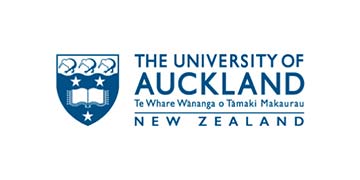University of Auckland: Bioengineers break boundaries at TechWeek
Professor Simon Malpas, head of the Implantable Devices Group which has developed an implantable device for the brain, to monitor the health of people with hydracephalus, remotely.
The development of a remote monitoring device that can be inserted into the brains of people with hydrocephalus will be one of the cutting-edge areas of research presented in a panel discussion by researchers by the Auckland Bioengineering Institute (ABI), at Breaking the Boundaries of Bioengineering, as part of TechWeek 2021.
Professor Simon Malpas who heads the Implantable Devices Research Group at the ABI, will describe his research into the development of a tiny pressure sensor device that can be implanted in the brain of people with hydrocephalus.
Hydrocephalus is the most common among infants and one of the most frequently treated neurological disorders worldwide. It is caused by an obstruction in the circulation of cerebrospinal fluid (CFS) in ventricles deep inside the brain, which puts pressure on the brain tissue, and can cause a range of impairments in brain function.
Dr Malpas group is in the final crucial stages of research before the remote-sensing implantable device can be trialled in adults with the disorder, and could be life-changing for those with the disorder and their caregivers. “It also represents a major advance in the potential of telehealth, to use such technologies to meet the needs of patients and their caregivers, no matter they live or their socioeconomic status,” says Dr Malpas.
Dr Malpas will be joined by Dr Hayley Reynolds, who is developing advanced software tools and imaging biomarkers to enable precision treatment of melanoma, breast cancer and prostate cancer.
They will also be joined by Amit Barde who is part of the ABI’s Empathic Computing Laboratory at the ABI, which is exploring new ways for technology to enable people to better understand one another, and communicate in Virtual Reality.
Register for Breaking Boundaries in Bioengineering, Shakespeare Restaurant & Brewery, 25 May, 6pm.
Dr Hayley Reynolds is developing advanced software tools and imaging biomarkers to enable precision treatment of melanoma, breast cancer and prostate cancer.
Media contact
Margo White I Media adviser
DDI 09 923 5504
Mob 021 926 408
Email [email protected]
Connect with us
…
More
Explore
About the University
Our faculties and institutes
About our research
Our campuses
Libraries and Learning Services
Learning and teaching
Find a study option
Search staff directory
University Calendar

